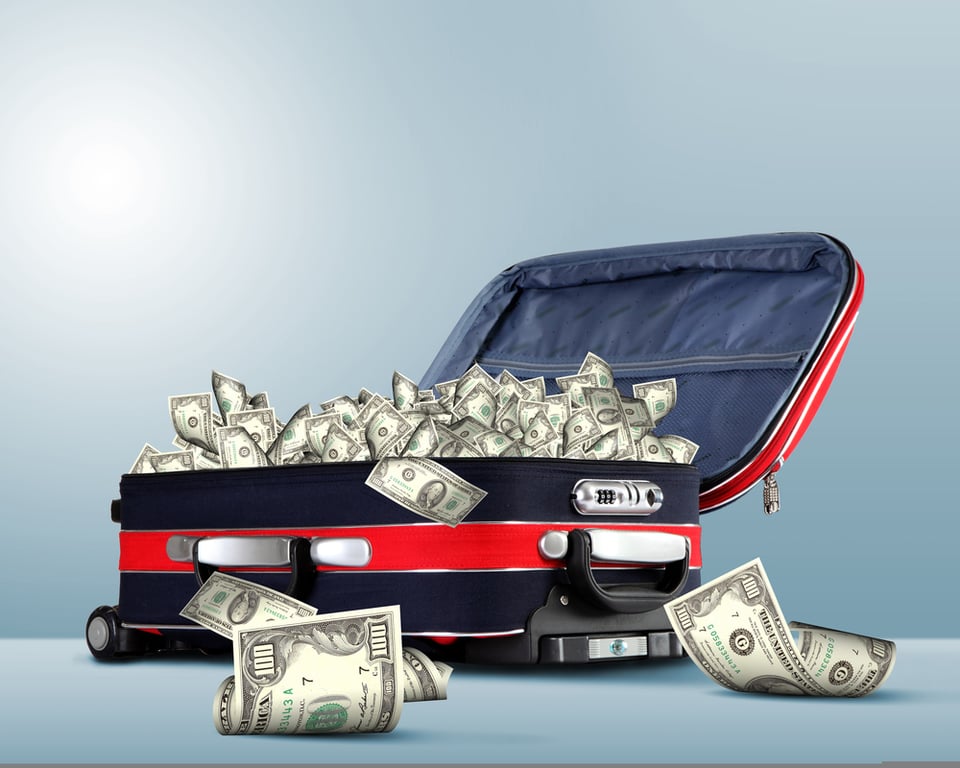Business Travel Expenses: Do You Keep the Records the IRS Requires?

Business travel can be an excellent opportunity for growth — meeting clients, attending conferences, or visiting suppliers. But from a tax perspective, it’s also an area where many small and medium-sized businesses leave money on the table.
The IRS allows deductions for “ordinary and necessary” business travel expenses under IRC Section 162. However, the deductions only hold up if you can prove the business purpose with clear, organized records. Without documentation, even legitimate expenses can be denied in an audit.
In this post, we’ll walk through the key rules for business travel deductions, what records you need to keep, and how to set up a system that protects your business.
What Counts as a Business Travel Deduction?
When your work takes you away from your tax home (your regular place of business), certain expenses can be deductible. These include:
- Transportation: Airfare, train tickets, rental cars, taxis, parking fees, tolls.
- Lodging: Hotels and other overnight accommodations.
- Meals: 50% of business meals while traveling, as long as you can document who was present and the business purpose.
- Other costs: Baggage fees, Wi-Fi for business use, shipping materials needed for work.
⚠️ Important: Commuting between home and your office is not deductible. The trip must be primarily for business purposes and long enough to require rest (usually overnight).
The Records You Must Keep
The IRS has been clear: no proof = no deduction. Here’s what you’ll need:
1. Receipts
Keep detailed receipts for airfare, lodging, car rentals, gas, tolls, and meals. Credit card statements are not enough — the IRS requires itemized receipts.
2. Business Purpose
For each expense, note the business reason. For meals, record:
- Who you met with
- What you discussed
- The date and location
3. Agendas and Itineraries
Conference agendas, meeting confirmations, or even calendar entries help show the primary purpose of the trip.
4. Mileage Logs (if driving)
If you use your personal car, track the date, destination, miles driven, and business purpose.
5. Dates and Duration
Document when you left, when you returned, and how long you stayed. This helps prove the trip was necessary and not just personal travel disguised as business.
Mixing Business and Personal Travel
What if your trip combines business and personal activities?
- If the primary purpose of the trip is business, most transportation costs can still be deducted.
- Personal expenses (sightseeing, vacation days, family meals) are never deductible.
- Lodging and meals must be allocated between business and personal days.
Pro Tip: Add an extra client visit or supplier meeting to strengthen the business purpose of your trip.
Why Record-Keeping Matters
The IRS often reviews business travel expenses in audits because they’re easy to misuse. Even if your expenses are 100% legitimate, missing records can lead to disallowed deductions, penalties, and interest.
A simple system can protect you:
- Use a separate folder (digital or physical) for each trip.
- Snap photos of receipts immediately.
- Keep quick notes about meetings while they’re fresh.
- Consider expense-tracking software that syncs with your accounting system.
Bringing It All Together
Business travel can be a powerful tax-saving opportunity — but only if you keep the right records. Think of it this way: every receipt, every note, every log is money back in your pocket at tax time.
At KFM, we help small and medium businesses create tax strategies that work, including smart record-keeping systems that keep you audit-ready.
📌 Next Step: Review how you currently track travel expenses. Do you have receipts, business purposes, and mileage logs? If not, it’s time to tighten your system before your next trip.
📅 Schedule a tax strategy session with KFM
Stay Accountable. Stay Ahead.
Follow our blog for real-time updates on tax reform, business finance, and smart accounting strategy.
#TaxTips #SmallBusinessFinance #TaxStrategy#SmallBusinessFinance#KFM #AccountableByKFM #Businesstravel #BusinessSuccession #SmallBusinessFinance #TaxStrategy #BookkeepingSupport #Travel #TaxPlanning
.png?width=1024&height=1024&name=Adobe%20Express%20-%20file%20(2).png)


.png?width=352&name=Untitled%20design%20(3).png)